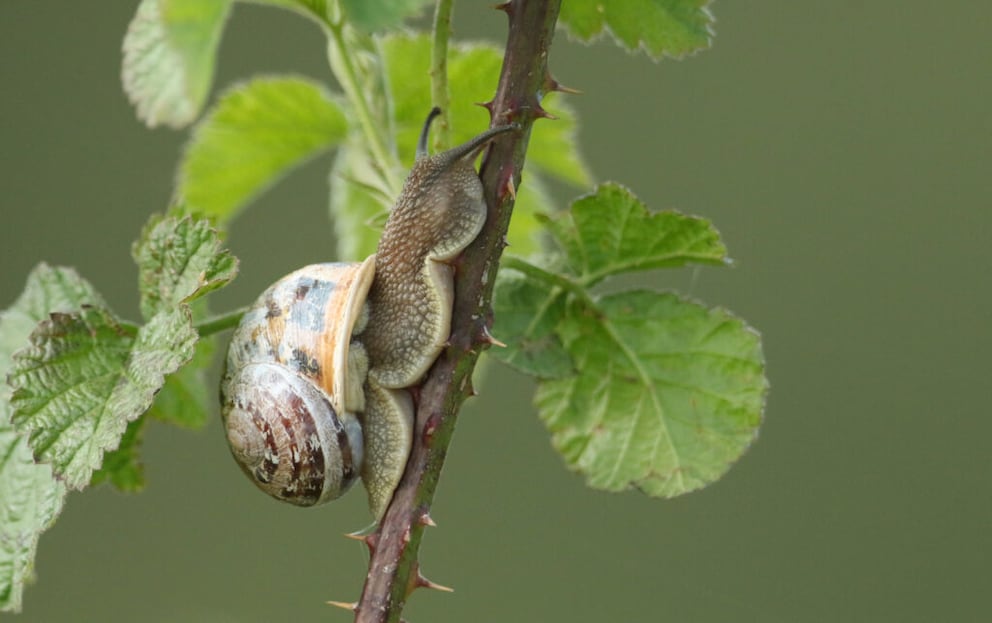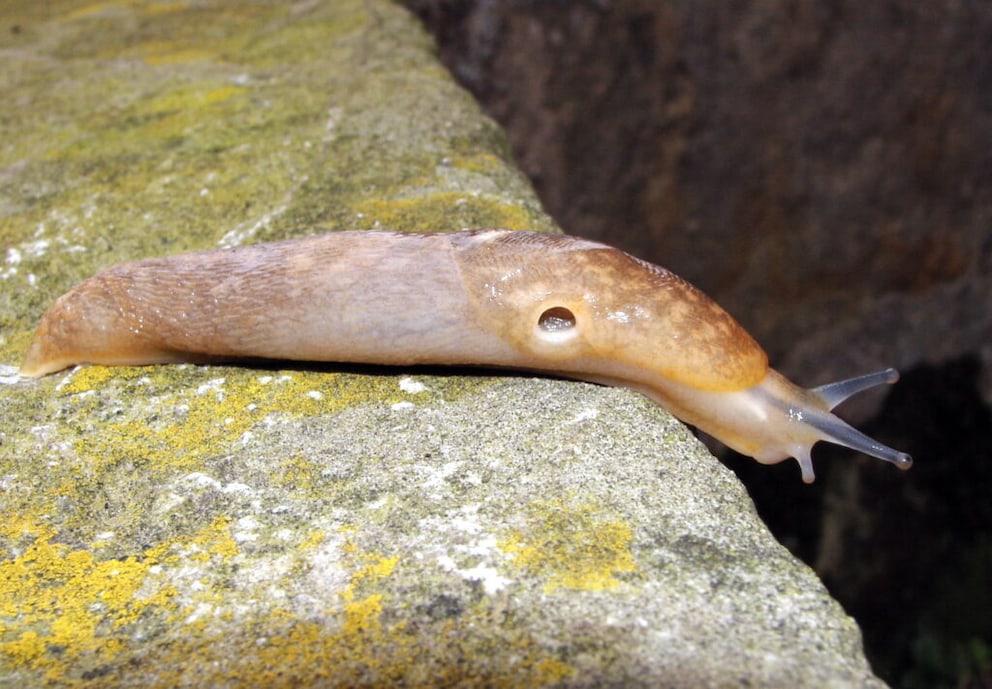October 10, 2024, 10:43 am | Read time: 3 minutes
In the garden, snails are considered some of the most unwelcome guests. They nibble on lettuce, strawberries, and cucumbers and can significantly decimate the harvest. To manage the snail infestation, many gardeners equip their beds with snail traps. The problem with this is that protected snail species also crawl into the traps and may die in the worst-case scenario.
Both chemical slug poisons and household remedies can be used to get rid of slugs and snails in the garden. The fact that gentle methods are better suited to keeping the creepy-crawlies away from the vegetable patch becomes particularly clear when snails that are protected species are caught. Catching or killing these species can result in a hefty fine.
What types of snails are there?
A rough distinction is made between slugs and snails. Some of the latter snails may not be killed or injured as they are protected species. However, it is the slugs that are really harmful to our plants. They prey on our lettuces and flowering perennials.
The snails with shells prefer dead plant parts and sometimes even smaller slugs. In some cases, they are considered beneficial insects in the garden, as they eat slug egg clutches.
These slugs are protected species
At the top of the list of protected snails in Germany is the vineyard snail (Helix pomatia). It is a delicacy on many menus in France and elsewhere. However, catching or killing them in Germany can result in a fine of several thousand euros, according to the catalog of fines. This is an administrative offense.

The Nordic purple snail (Nucella lapillus) is also a protected species in Germany. However, it is found less in gardens than in the North Sea and the North Atlantic.

Tiger Slugs: Why This Snail Is Good for Your Garden

Copper Tape Can Effectively Repel Snails in the Garden

How to Easily Make a Snail Collar Yourself
No species protection for these snails – but please report them
Not all rare snails enjoy species protection. The beer snail (Limacus flavus), for example, was considered extinct in Germany for several decades. It was only a few years ago that it was discovered rather by chance – and ironically – on the Reeperbahn in Hamburg.
According to the Süddeutsche Zeitung, it is a slug with a particular fondness for cuddling with other members of its species. Although it is an endangered species and was already considered extinct, it is not a protected species. However, some federal states are asking people to report sightings.

The beer snail was even voted Mollusk of the Year 2023. In addition to its preference for cuddling, the beer snail also has another peculiarity. It leaves the lettuce in the garden if it has the opportunity to eat lichen or mushrooms.

